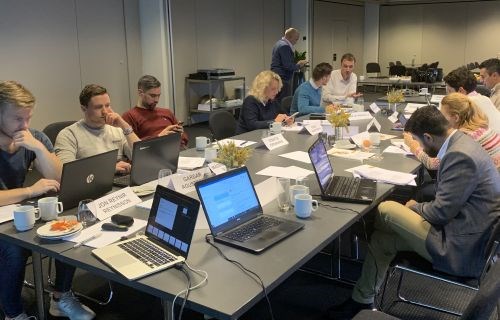From Iceland to India: 13 new countries join the National Sports Governance Observer project

Academics, students and government officials met in Denmark to learn how to use the Sports Governance Observer Tool. Photo: Play the Game
20.11.2019
By Kirsten SparreThe National Sports Governance Observer is a tool developed by academic researcher Arnout Geeraert to support research into how national sports organisations are doing on four different governance dimensions: Transparency, democratic processes, internal accountability and control, and societal responsibility.
Academics, students and government officials wanting to look at sports governance in Albania, Bulgaria, Greece, Iceland, India, Nepal, Portugal, Slovenia and Ukraine met in Denmark this week to receive detailed instructions on how to use the tool that produces a picture of 46 good governance principles though 274 yes and no questions. Representatives from Serbia, Indonesia, Mexico, and Bosnia-Herzegovina will also join the project.
All project partners will study at least eight sports organisations in their country of interest, and five of these must be the organisations that administer athletics, football, handball, swimming and tennis.
Talking is more important than figures
This latest part of the National Sports Governance Observer project is supported by a grant from the Danish government and has extraordinarily allowed Play the Game to provide a modest amount of seed money so the new partners can get their projects up and running.
Each partner will produce a national report during 2020 that can be added to previous findings from 16 other countries where governance in sports organisations has been analysed as part of the earlier rounds of the National Sports Governance Observer project.
However, according to the international director of Play the Game, Jens Sejer Andersen, figures and numbers are not the most important part of the project:
“What is really important is that we communicate our findings and have meetings with sports leaders and organisations to discuss issues of governance based on the research. The more the better. The overall goal is to raise awareness among sports organisations and assist them in improving their quality of governance,” Andersen said at the meeting in Denmark.
He pointed out that the earlier audits of sports governance have already influenced legislation in Poland, Brazil, Belgium, the Netherlands and Cyprus, and in Denmark the National Olympic Committee will be introducing new governance regulations inspired by findings from the project.





